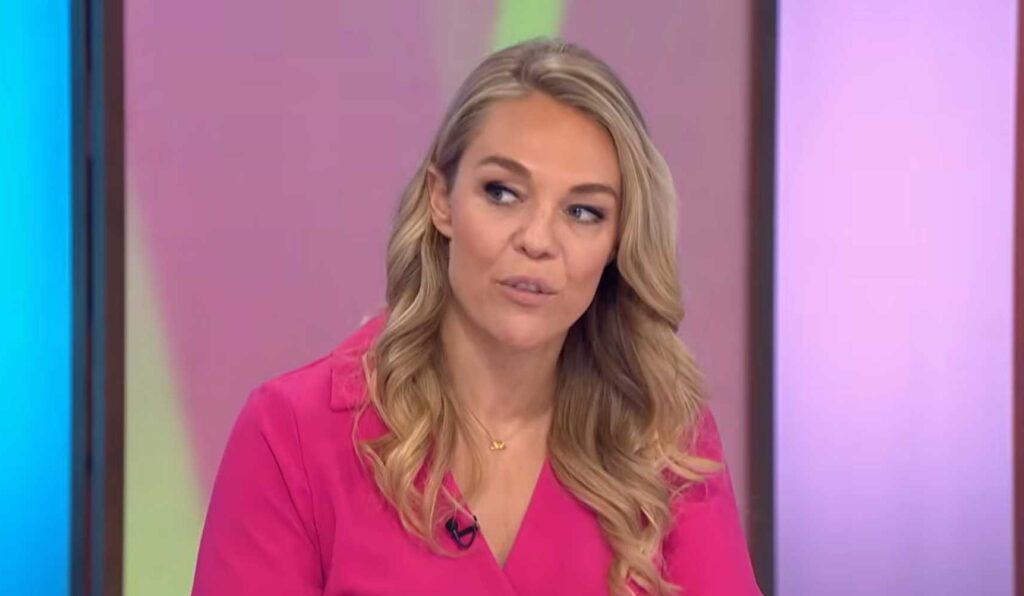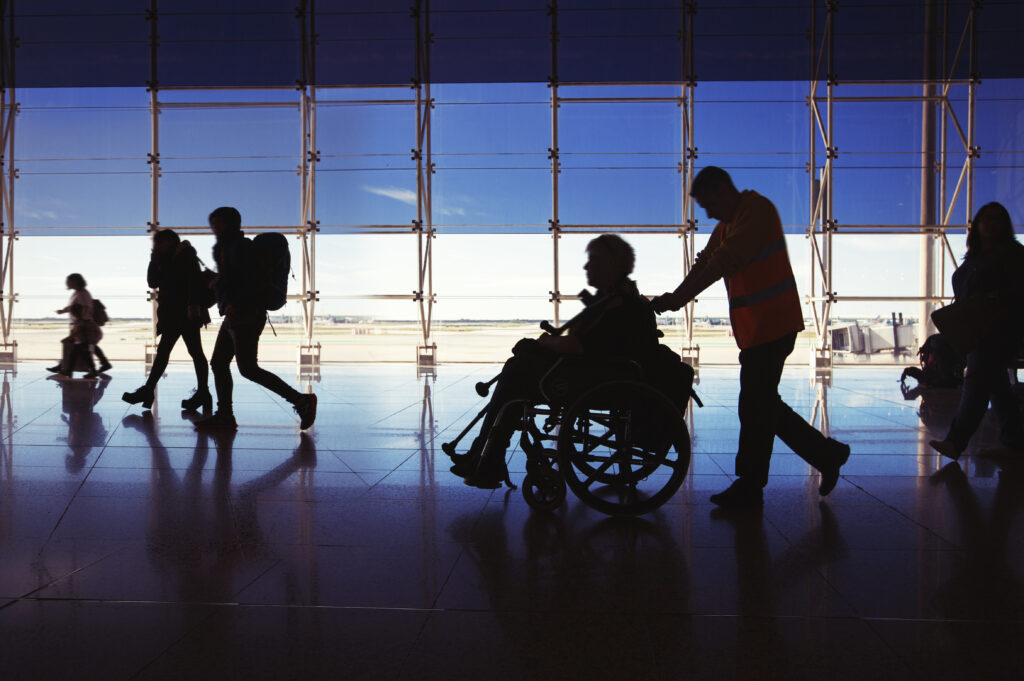In March 2023, British TV presenter Sophie Morgan launched the Rights on Flights campaign to raise awareness of the difficulties that disabled air passengers face – and force change from the top.
She says the aviation industry needs to take responsibility when it has – or is deemed to have – failed disabled people, because lack of adequate support is an all too common occurrence.
From broken wheelchairs to poor passenger boarding processes, Morgan, who herself is a wheelchair user, demands that stakeholders work to improve accessibility – or face consequences.
Campaigning for change
The campaigner is calling on the UK government to empower the aviation regulator to dish out penalties to airports, airlines or ground handlers where they fail disabled passengers.
In an interview with ARGS, Morgan explains: “Rights on Flights started the day my wheelchair got broken when I was travelling with British Airways.
“I went on TV the next day and started talking about the fact that this happened too often to too many of us because I just felt enough is enough – and it kicked off. A politician’s aide was watching, got in touch with me and said, ‘We’d really like to support you’.”

Sophie Morgan on ITV’s Loose Women (Image credit: Screengrab via ITV)
The presenter is lobbying the government to hand powers to the Civil Aviation Authority (CAA) “to make us as disabled people feel we are being looked after”.
In July, Morgan released a Channel 4 documentary highlighting the real battle that disabled passengers face when flying, from check-in to boarding.
It showcases only a glimpse of some of the inhumane treatment suffered by people with disabilities who documented their airport journeys with hidden cameras, including one man who was forced to drag himself along the floor of an aircraft to access the toilet because his airline did not have an adequate chair to transport him down the aisle.
‘There should be consequences’ for failing us
Morgan says all stakeholders need to play their part – which includes, the airports, airlines and ground handlers – and that change must begin now.
“We’ve had so much talk from people saying they’re going to do the ‘right thing’ and I am absolutely doggedly determined to hold them to account,” she tells ARGS.
“The last government promised it would give the regulator more powers, address some of the conversations and look into the [problems we are highlighting]. But we’re still here.”
Morgan is hopeful the new government, which came into power in July, will be more receptive, “but I’m not going to remain patient for long”, she stresses.
“There should be consequences for parties who consistently fail disabled passengers or any passengers. Take away the word ‘disabled’, if airlines and airports were consistently failing travellers by losing luggage or breaking equipment, there should be consequences but we’re not seeing them.
“The people who are being punished are the passengers. So, yes, increase fines, but the biggest measure should be suspending an airline’s AOC [air operator’s certificate] so that they wouldn’t be able to operate flights for a given time – that kind of level.
“That seems extreme, but if people’s legs were being broken at the same rate wheelchairs are being broken there would be stronger repercussions. They wouldn’t be able to fly.”
But Morgan’s campaign is not just about making air travel more accessibility for people with disabilities. She says it is about improving service provision for the benefit of all.

Morgan has a meeting scheduled with the UK transport secretary to discuss the Rights on Flights campaign (Image credit: @Annatamila/Adobe Stock)
She explains: “This is not just about a small group of people. This is about making customer care better for every single person who steps onto an aeroplane.
“Disability will likely happen to us all in one way or another because we all inevitably age into disability.”
The TV presenter emphasises that, even at a design level, if aircraft are configured with the most disabled passengers in mind – be it by age or injury – all will benefit because anybody can be accommodated.
Sophie’s solution
But how can change be made? According to Morgan, it starts with the government. She says the aviation regulator must be handed the authority to punish stakeholders where they are deemed to have failed disabled people, be it with fines or by temporary suspension of operations for airlines.
It is, though, about more than just punishment. Morgan says improvements to training must be made and led by disabled people themselves for all staff, from check-in agents to ground handlers and cabin crew.
She explains that stakeholders “need to work out how to improve the quality of their workforce”. This means better training.
“I’ve heard first hand they don’t get the right training for handling our wheelchairs, let alone handling a disabled person,” she adds.
Morgan’s solution also encompasses redesigning aircraft configurations so that passengers, such as those who require bespoke equipment, can use their own wheelchairs on board, instead of the standard seating and the complications that come with it for those individuals who have additional needs.




